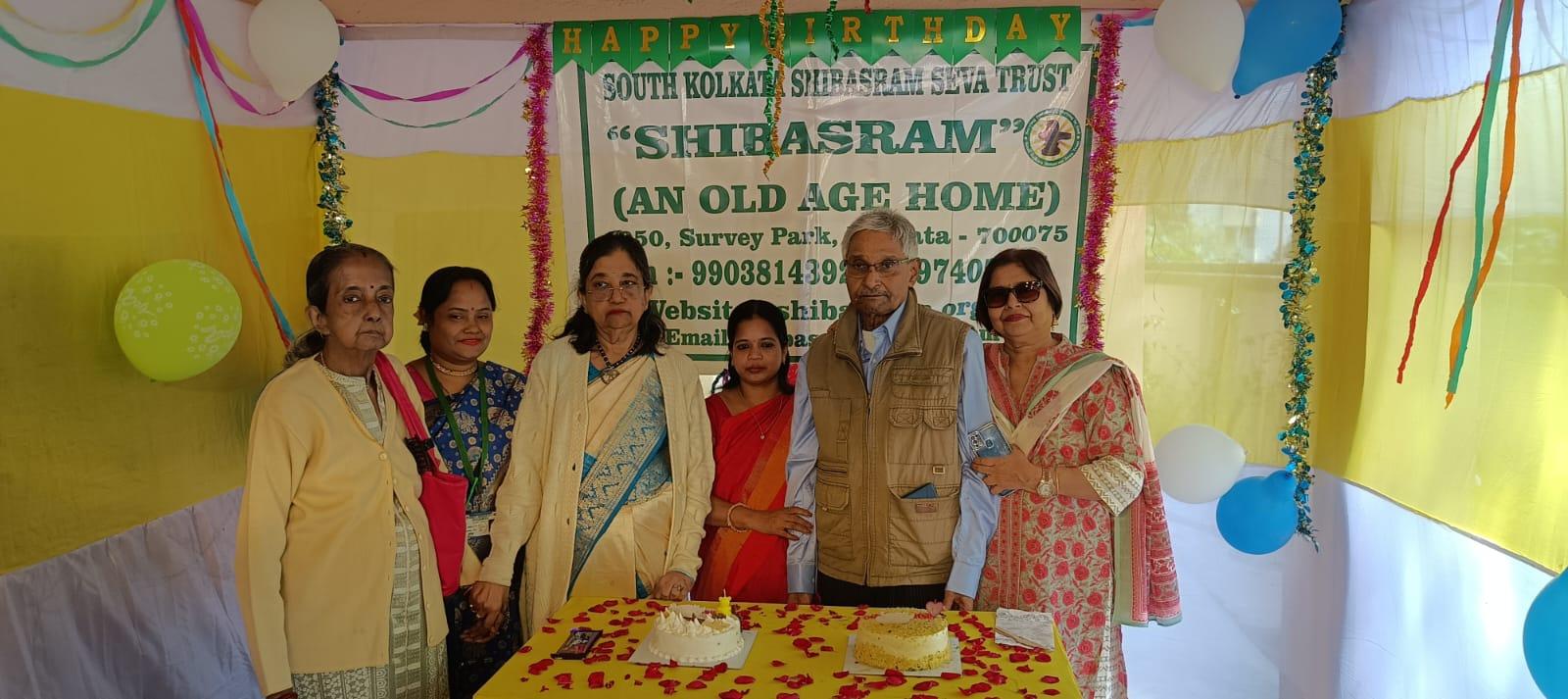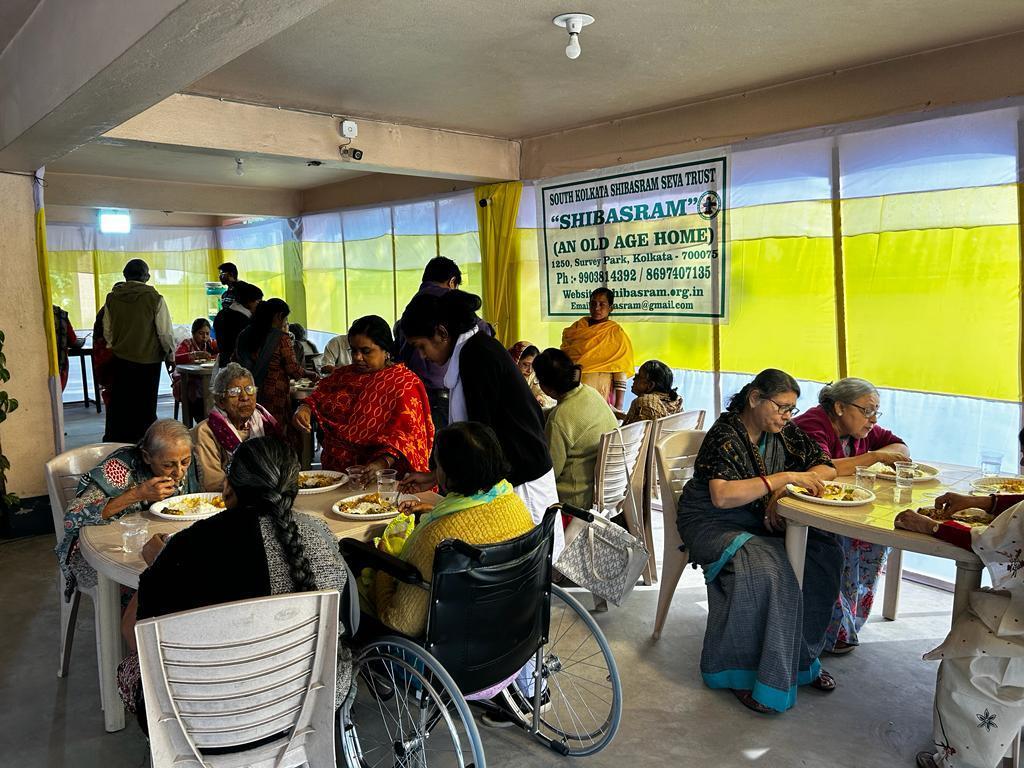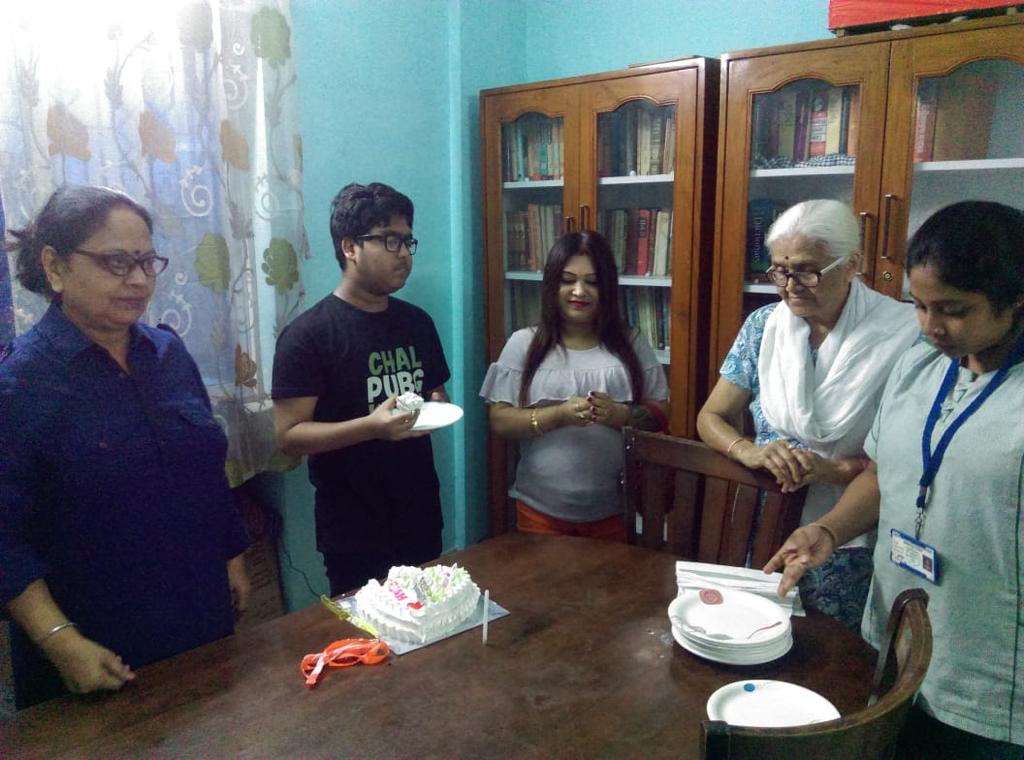We are certified by the Indian TRUSTS ACT, No. 2 OF 1882


Old age home for senior citizens in Kolkata
Here are some facilities for old age home for senior citizens in Kolkata
- Routine doctor visit and checkup
- Routine health care, skincare & hair care
- Supporting with eating
- Helping with dressing, exercises
- Assisting with toilets
- Vacuuming, cleaning, and arranging
- Specialized Care
- Wellness Programs
- Monitoring the medicine and food intake
- Spiritual and Emotional Support
- 24X7 Staffing, nursing, medical care

Our mission is to provide the best services.
Old age home for senior citizens in Kolkata
Our shibashram old age home main aim is to provide a beautiful environment to all the elderly people and provide them with the best care. We believe that every elderly person has the freedom to enjoy their life and we strive to help every elderly person to enjoy their life with good laugh and play. In our old age home we provide healthy and tasty food to every people and also we have some special measures to keep their mind healthy and happy like Meditation , Vajan etc . We always want an elderly person to enjoy the comfort of his own home in our old age home in kolkata.
Our Services
Old age home for senior citizens in Kolkata with a variety of exclusive facilities for senior living.
Assisted Living Care
It provides support for basic thinking, help with work, medical examinations, meal management, communication with family and recreation. Through this service, the humanity of freedom, belonging and happiness is ensured in the lives of the elderly.
Resident Care
There are so many people who have to depend on someone else for residential facilities . Thinking of them we have come up with residential facilities for them so that they don't have to depend on someone else and they get cared just like their own home.
Pharmacy Support
As the age increases, the human body is affected by various diseases and therefore they need the best Care and treatment . As well as providing them with the necessary medication is important .
Post-operative nursing care
Post operative nursing care includes patient examination, administration of medication, communication regarding rehabilitation, guidance with resuscitation, administration of nutritious food, cleaning and provision of precautionary measures.
Chronic Condition Care
Asthma, arthritis, heart disease, cancer all these diseases are called chronic diseases . All these diseases last for at least six months and these diseases can cause the death of a person . In Our old age home we have a special arrangement to take care of these special patients .
Palliative Care
Palliative care is for terminally ill patients who provide help and support while waiting to die. It provides humanitarian and physical administration, pain relief, hospital and family liaison and complete support and assistance to people at the end of life.
Geriatric Care
Geriatric care is a specialized geriatric care service that improves the health, well-being and quality of life of the elderly. It provides services related to treatment, nutrition, skilled care, physical and emotional support, assistance with important life activities and recreation.
Alzheimer care
Alzheimer's care is a specially managed workplace that provides services and support to people with Alzheimer's. It provides attention, time recognition, favorable environment by organization, assisted general direction, life forecasting and daily support through a skilled team of trained psychologists.
Dementia Care
Dementia care is a specially managed workplace that provides services and support for people with dementia. It organizes memory planning, timing, care, nutrition and environment through a skilled team of psychologists. Support and assistance with recreation, entertainment and general patient activities are also provided.
Paralytic Patient Care
While caring for a paralytic person one should always remember to keep the patient's skin dry and clean. If a paralytic patient is prone to ulcers, these rules must be followed . It is very important to massage the area of the patient's body that is prone to ulcers at least four to five times a day.
Parkinson Care
Although Parkinson's disease is a brain disease for which we can see various problems in our body such as Shaking and not being able to balance your body . The only way to fix this disease is to adjust your lifestyle and do various bionic exercises
24/7 Special Services
Our old age home in kolkata provides expert services to all senior citizens, in our old age home you will get 24 hours service which we provide to all old people.
Old age Home in Kolkata
Best 1 Old Age Homes in Kolkata, West Bengal. All of our old age homes really confront a thorough 100-Point Assessment, which incorporates client audits, history, complaints, evaluations, fulfillment, believe, fetched and their common fatuousness. You merit as it were the finest!
The old age home takes care of every senior citizen by providing them with medical care, giving them their medicines on time, and ensuring that their food is taken care of They also provide healthy meals for every old age person. Alzheimer’s Care In Kolkata
Elderly people and their families are now seeking highly professional and competent services from nursing homes. Additionally, there are ongoing efforts to promote social interaction and recreational activities among the elderly. Therefore, the future of old age homes in Kolkata is poised to be both influential and dynamic.
Shibasram Old Age Home in Kolkata offers a variety of exclusive facilities for senior living. Old people can spend their lives in a nice and happy way at this old age home in Kolkata. The accommodation is very comfortable, and the environment is beautiful, making it convenient for senior citizens. Additionally, special care is provided for Alzheimer’s and Dementia patients. Shivashram Old Age Home is renowned as one of the commendable Old Age Homes in Kolkata, providing a luxurious life for senior citizens in a beautiful environment.
Senior living housing projects are residential projects for seniors where facilities address senior-specific aging difficulties, or simply, age-friendly housing designs, where premium homes are residential projects.
Retirement does not mark the end of life, but the beginning of a new life. It enables individuals to rediscover the joys of life, embrace an active and rewarding lifestyle, and relish the freedom that accompanies freedom from job commitments. Senior living communities provide the ideal environment for retirees to thrive.
Builders construct these homes with the specific needs of seniors in mind, incorporating age-friendly amenities and creating supportive neighborhoods. These communities encourage residents to lead an active lifestyle, enabling them to participate in a variety of activities, maintain social contact, and find fulfillment in their senior years.











